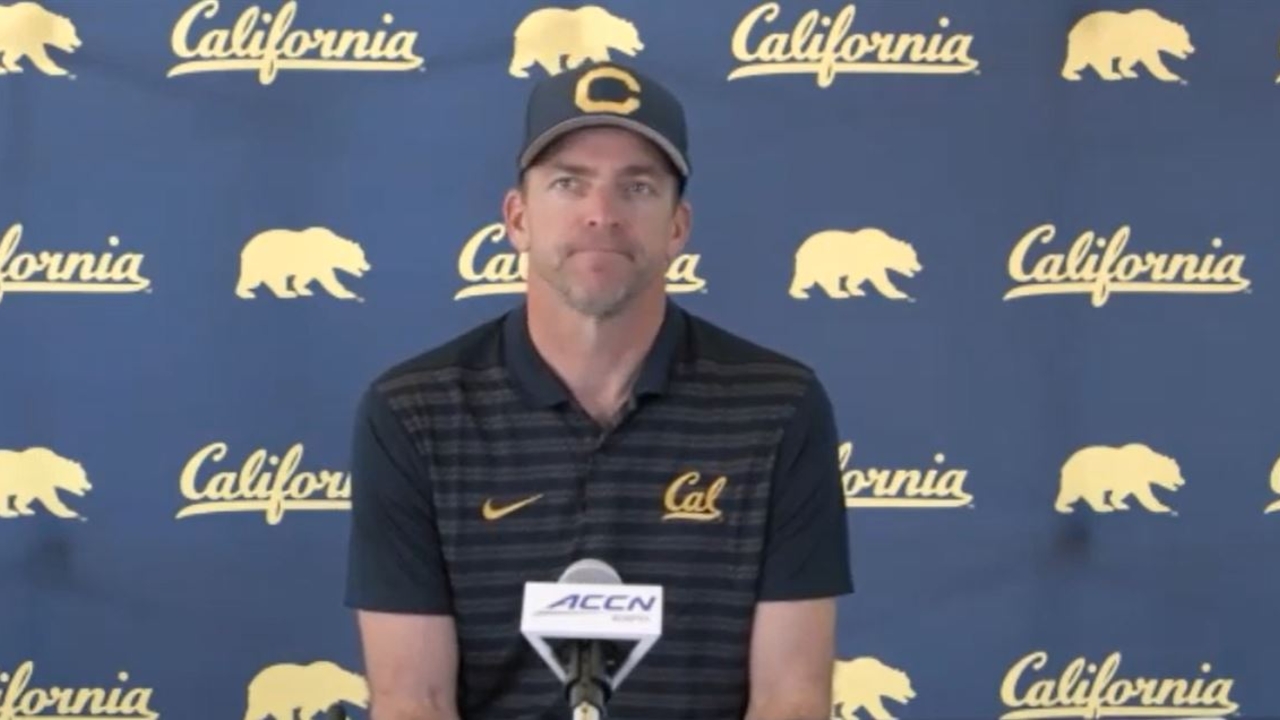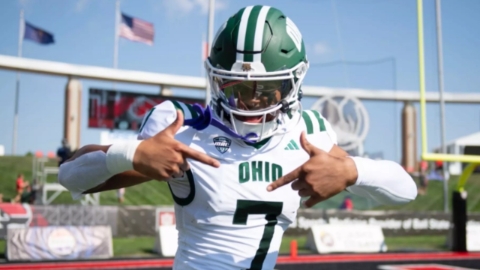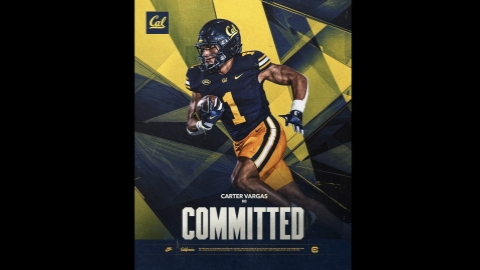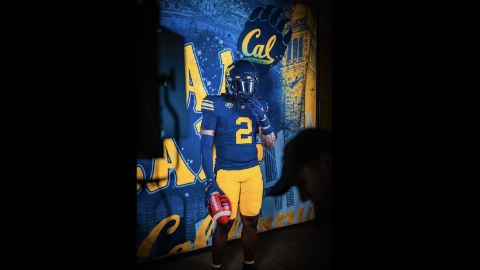
Cal head coach Justin Wilcox, defensive coordinator Peter Sirmon, offensive coordinator Mike Bloesch, defensive tackle Nate Burrell and quarterback Fernando Mendoza were on the mic today for Cal’s weekly press conference to discuss the loss to Miami and Saturday’s upcoming game against Pitt.
The Bears missed a golden opportunity to take down a top ten opponent for the first time in decades and let a 25-point lead slip through their grasp in Saturday’s tough 39-38 loss to #8 Miami.
"Acknowledge that losses are difficult and whenever you suffer a loss, you've got to learn something from it," Wilcox said. "And we learn those lessons. We hit it head on. We look at the tape. We don't bury the tape and not think about it. We look at the tape and look at the things we did well, and then correct the things that we need to do better and we do that every Monday. Is it an is an emotional game? Very, very disappointing finish, and we have to learn from it. That's what our job is as coaches and players. And they did a good job of that, and we were back at it yesterday."
One of the biggest back-breaking plays was a late fourth-quarter short reception by receiver Xavier Restrepo that ended up netting Miami a critical 77 yards in their last scoring drive.
"Yeah, it was a busted coverage," Wilcox said. "It was unfortunate. We didn't have many busts during the game on defense. Doesn't mean we always played great, obviously, but that was a busted coverage. The guys on the team made a mistake, and it's unfortunate. We busted the coverage, and then we weren't able to get him down earlier and he made a guy or two miss, and then it was a big, explosive play. So disappointing, and we have to do a better job as coaches. It was late in the game and most of the game, it was real clean. Didn't mean we played great, but we didn't have a lot of busts, and that was a bust."
Wilcox was asked if the offense perhaps took their foot off the pedal and was less aggressive in trying to protect their big second half lead Saturday.
"I'm not sure what you mean by foot off the pedal," Wilcox said. "Everybody was competing very hard. We, as coaches, players, knew what type of team they had. We called everything we were looking at. We're trying to put the guys in the best position to be successful. We struggled in the fourth quarter, really, in every area on offense and defense. There's 10 to 12 plays at least on each side, and we've just got to make one of them and we didn't, whether it's a tackle, pass rush. We really struggled to rush late in the game. And then when we did pressure, we were not covering great. Offensively, trying to get some yards, get a first down, we had a couple. There was a tipped ball interception that we weren't able to come up with.
“There's just a number of things, and we didn't make those plays. So we've got to do a better job executing. We will always be critical in looking back on what can we do better. What would we like to have called differently? I mean, anytime there's an unsuccessful play, it's obvious that, well, if it was unsuccessful, would you call something different? Of course, you would. And then there's times, I mean, you also have to look at the execution of the play, and what are you trying to get out of it? You can't double every receiver, every time. You can't zero blitz them every time, and we just did not do a good enough job as a team, and that's coaches and players with shared responsibility. We did not do a good enough job late in the game against a very talented group of players, and they came back and won it."
The Bears were at a huge time of possession deficit for the game to the tune of 37 ½ minutes to 22 ½ and the defense clearly wore down in the fourth quarter of the loss when Miami completed their comeback win.
"You can say all you want you gotta bow up, you gotta make the plays," defensive coordinator Peter Sirmon said. "But I think off the the stat line, it was a three hour and 50-52, minute game from start to finish. Obviously, a lot of highs and lows in that. And I had concerns walking in at halftime, even with where we were when I got the sheet that saw we played for, I think, 22 minutes and 45 seconds and almost 41-42 plays in the first half (on defense). And then you lose one or two guys in the front rotation. And just knowing the type of athletes that the other side had that was in the forefront.
“I think Cam (Ward) threw the ball 22 times in the fourth quarter, and those reps at the end of the game just proved that we had a hard time managing the pocket. We had a hard time getting to him. We had a hard time when the when the routes did break down, or when the quarterback escaped the pocket. It's just those second and third part of the plays that proved to be very, very difficult for us in the fourth quarter."
Sirmon was asked where coaches have to draw the line in striking a balance between doing what helped get them a big lead vs. protecting that lead.
"There's a lot of context to that question,” Sirmon noted. “And I think I could probably elaborate on that for a few minutes. I think there's a couple considerations, as you say. It's what's the lead? How's your team playing? How did the team get the lead? Was it earned? Was it a fluke? There's different situations. The scoreboard and then the clock? And there's a lot of different ways to look at that coming out after half. We kept the same style of play. And really, throughout the whole duration of the game, it was similar style of play.
“Nohl's interception, I thought was a huge moment, right there. And then the more we played, and the looser the game got for their offense, it became, became tough for us to manage the quarterback, to be able to manage some of the cover down, or the scramble, or the plaster situations that he possessed. So I think there's a lot to it, but really, the way I called the game, there wasn't a significant amount of difference.
“Went back and looked at and kind of did a self-scout on what I call my critical downs, which were third and fourth downs and two-point plays, and there were 25 of them. Not every ball was snapped, but there were 25 of them. And defensively, I called 24 different huddle calls on those 25 plays. So I burned through the call sheet trying to give them as many different presentations, fronts, coverages, disguises, as we could and ultimately, I didn't get it done."
For Saturday’s upcoming game at Pitt, Wilcox was asked about QB Eli Holstein and the explosive Pitt offense so far this season.
"They're playing really, really well, obviously," Wilcox said. "Statistically, it jumps out at you, and then you watch them play on tape. I think they've scored 70. They've scored 50. The lowest they scored, I believe it was 28 and then the other ones were (in the) 30s. So they're putting up a lot of points. They're throwing the ball all over and running the ball for almost a couple 100 yards a game. Offensively, they're performing at a really high level.
“He's a very good quarterback. He's statistically in the top 15 in virtually every category. So he's a very talented football player. He can throw the ball. He's got really good anticipation, he's accurate, he can move. He can do a lot of things well. They have some very good receivers. The tight end is a good player. The running back is a talented young man so they're a very, very efficient, explosive offense. You don't score 70 or 50 on accident."


